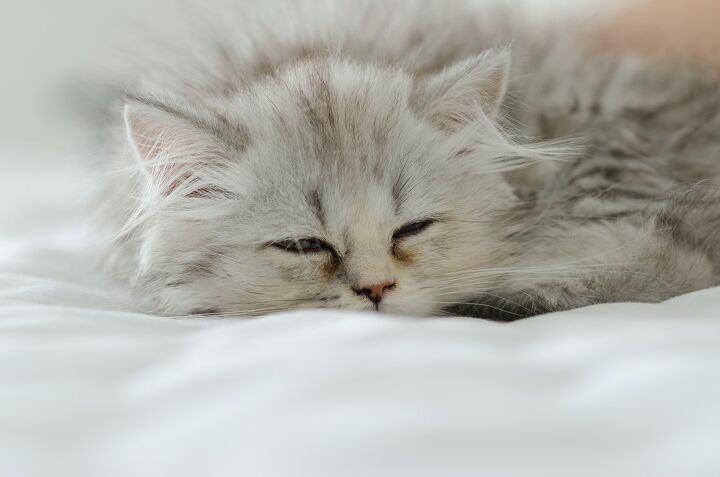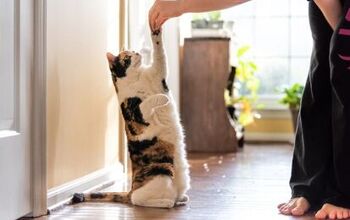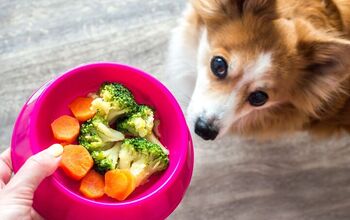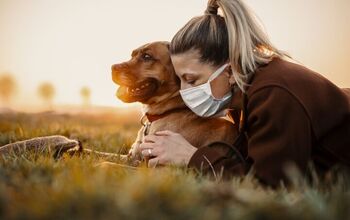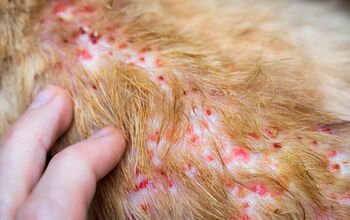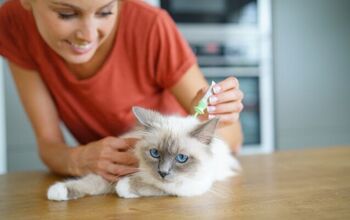Home Remedies for Cat Vomiting

It’s not pretty, but it may be something you can treat at home. Here are some ideas on some home remedies for cat vomiting.
Many cat parents wonder why their kitties throw up, and there are a lot of reasons why your pet would vomit. For example, vomiting might be related to your cat’s diet or to a food allergy. It might also occur if your kitty ends up eating too quickly, or if she went too long without eating. And, of course, there are hairballs that can be thrown up as well. But serious issues (such as poisoning) and health issues (such as digestion problems or metabolic disorders) might also be to blame.
First Off, Work with Your Vet If Your Cat Is Vomiting a Lot
If your kitty is vomiting a lot, you don’t want to ignore it and think nothing of it. After all, this behavior is not considered normal. So, it’s necessary to consult with your veterinarian to figure out what’s going on. You want to be sure there aren’t any underlying health problems at play – and, if there are, you definitely want to be able to address them in their earliest stages rather than waiting for them to get worse and harder to treat.
Once you have taken your cat to the veterinarian and determined what is causing her to vomit, whether it is a minor problem or a major one, you can then work with your vet to give your kitty exactly what she needs to get well. And, because working with your vet can give you insight into what’s causing your kitty to vomit, you can select a solution, such as one of the home remedies discussed below, with more accuracy rather than potentially implementing the wrong solution or one that won’t be effective.
Related: Vomiting in Cats: When to Worry
Consider Switching to a Different Food
The food that your cat is eating every day might be the reason that she is vomiting. Your kitty might have trouble digesting her food if you’re feeding her a poor quality diet, and that might lead to vomiting. Also, a food allergy might be to blame if you find that your cat vomits often.
Consider switching to a higher quality species-appropriate food that may be easier for your pet to digest. And rotating protein sources so you aren’t feeding the same protein all the time might also be a smart strategy if you want to avoid or address a food allergy. But if you aren’t sure about which foods and treats would be best for your unique kitty, be sure to talk to your vet for guidance.
When it comes to figuring out if your cat has a food allergy, your veterinarian can guide you so you can try an elimination diet trial. Put simply, this can help your vet figure out which ingredients are causing your pet’s symptoms. From there, you can work on switching to a food that will be suitable for your unique feline friend because it won’t contain any ingredients that should be avoided.
Fasting and a Bland Diet
Withholding water and food for about two hours might be a good place to start if your kitty is vomiting, particularly if your pet’s stomach is irritated and she keeps vomiting after she eats. Basically, fasting for a bit may allow the stomach to rest.
Important Note: It’s always best to talk to your veterinarian and receive some guidance when it comes to fasting your cat or giving her a bland diet. However, below are some of the basic guidelines that you might be told to follow if this is recommended for your pet.
If you’ve fasted your cat for two hours and she hasn’t vomited, you can give her some water. But if your kitty isn’t the type to drink water, you can give her some tuna juice to see if she’ll drink that to help her stay hydrated. It’s important to ensure she keeps drinking, even if you are withholding food for a bit, because you don’t want your kitty to become dehydrated as a result of the vomiting.
Once your cat isn’t vomiting after consuming liquids, you can offer her a bland diet, feeding her small amounts of the food frequently. As an example, you could boil some fresh chicken yourself, or you could ask your vet about a prescription diet that’s worth trying.
Start by giving a small amount of food, waiting an hour to see if there’s any vomiting, and then giving a bit more. Then, you can continue providing small amounts of the bland diet every three or four hours. Do this for the first 24 hours, working on slowly decreasing the frequency of the meals while increasing the amount of food given.
Your vet might recommend feeding this bland diet for two days before slowly reintroducing your kitty’s usual diet. Simply mix some of the regular diet with the bland diet, increasing the amount of the regular diet with every meal. If your kitty is tolerating it all without vomiting, that’s a good sign.
Related: When A Cat Hairball Is Normal And When It’s Not
Strategies for Reducing Hairballs That Cause Vomiting
If your kitty tends to throw up hairballs often, there are some steps that you can take to help reduce this type of vomiting. For example, you can help her out by brushing her daily to remove excess fur that she’d otherwise swallow while grooming herself. This is one of the simplest strategies that you can implement immediately, whether your cat is shedding or not. Just buy a high-quality brush for cats, such as the Safari Complete Cat Brush, and then let her relax and enjoy being pampered as you gently comb the fur and remove all of the loose hairs with ease. Doing this regularly, such as several times a week, might make a difference, especially if your cat has a long coat and tends to get hairballs a lot because of it.
You might even consider adding a small amount of olive oil to your pet’s food. A teaspoon per week may help your kitty’s digestion and help her pass the hair through her stool rather than throwing it up. Your veterinarian can provide personalized guidance on whether this would be appropriate for your pet.
Yet another option is to add a bit more fiber to your cat’s diet. This, too, could help ensure that the hair your cat swallows while grooming will move through her digestive tract and come out in her stools. For example, you might opt to try pure canned pumpkin, which can be added to your pet’s food to help keep her digestive system running smoothly, and to keep those hairballs moving through.
Just bear in mind that, when it comes to adding ingredients to your pet’s diet, it's best to consult your veterinarian. That way, you can be sure it’s a smart thing to do, especially if your cat has been diagnosed with a medical problem, if she’s on a special diet, or if she’s taking any medications or supplements.
What About Vomiting That’s Caused by Motion Sickness?
Does your cat experience nausea and vomiting when you travel with her? This is a common problem, especially among kitties that aren’t used to traveling.
If you think the vomiting is caused by stress, there are some options to help your pet feel more at ease. For example, to help her feel less anxious when traveling by car, you can try natural remedies, such as feline pheromones and Bach flower remedies. Plus, there are herbs, such as valerian, that might help keep your pet calm as well, but it’s a good idea to have a chat with your vet to be sure they’re safe to give to your cat.
Reducing the amount of food that you give to your cat before heading out might also be helpful. Feeding your kitty several hours before you plan to leave home may help reduce the odds that she will feel nauseous or throw up.
Of course, there’s also the option of talking to your veterinarian about your kitty’s motion sickness. That way, you could get tips on what you can do to help your cat feel better, and your vet can also discuss medications that might be appropriate for your cat when it comes to combating nausea or anxiety.
Natural Remedies for Vomiting in Cats
Some experts recommend various natural remedies that you can try at home when your cat is vomiting.
As an example, a pinch of catnip might help calm a kitty’s upset stomach, but there are other herbs that may be effective as well. If you’re thinking about taking this route, it’s best to talk to a veterinarian, such as a holistic vet, who can guide you in the right direction based on your unique cat’s needs.
Experts also recommend other natural options, such as kefir, Bach Flower Essences, and homeopathic remedies. Again, it’s best to work with a vet if you’re going to try any new supplements, herbs, etc. You’ll want to be sure you’re providing the right dose at the right frequency, and you’ll want to be absolutely certain that it’s safe for your pet.
Know When to Call Your Vet
Vomiting is considered acute when it doesn’t last for more than two or three days, and this problem will typically go away on its own. But if the vomiting becomes chronic or severe, it might result in other problems, such as electrolyte imbalances or dehydration. So, if the vomiting doesn’t stop, call your vet to figure out what’s going on and get your cat the help that she needs.
Keep in mind that vomiting might be caused by something minor, such as your cat eating something that she wasn’t supposed to consume, but it might also be a symptom of something serious, such as poisoning. Also, conditions that might cause vomiting include intestinal or urinary tract obstruction, thyroid disease, cancer, inflammatory bowel disease (IBD), infection, and liver disease. So, you’ll definitely want to consult with your vet ASAP if the vomiting doesn’t resolve with simple home remedies like the ones discussed above.
The bottom line is this: if you try some home remedies but your cat continues to vomit, if the vomiting gets worse, or if other symptoms arise, such as lethargy or inappetence, call your vet right away so you can have your kitty examined and treated appropriately. Don’t waste time trying out a bunch of different solutions because, the faster you get an accurate diagnosis, the faster you can do what’s necessary to help your cat stop vomiting. In other words, don’t hesitate to ask for help.
And, again, asking your veterinarian about any remedies that you are thinking about trying is worth the time and effort because you always want to be sure that you are giving your pet something that will be safe and effective.

Lisa Selvaggio is a freelance writer and editor, and our resident cats-pert, with certifications in pet nutrition and pet first aid. She enjoys producing content that helps people understand animals better so they can give their pets a safe and happy home.
More by Lisa Selvaggio



